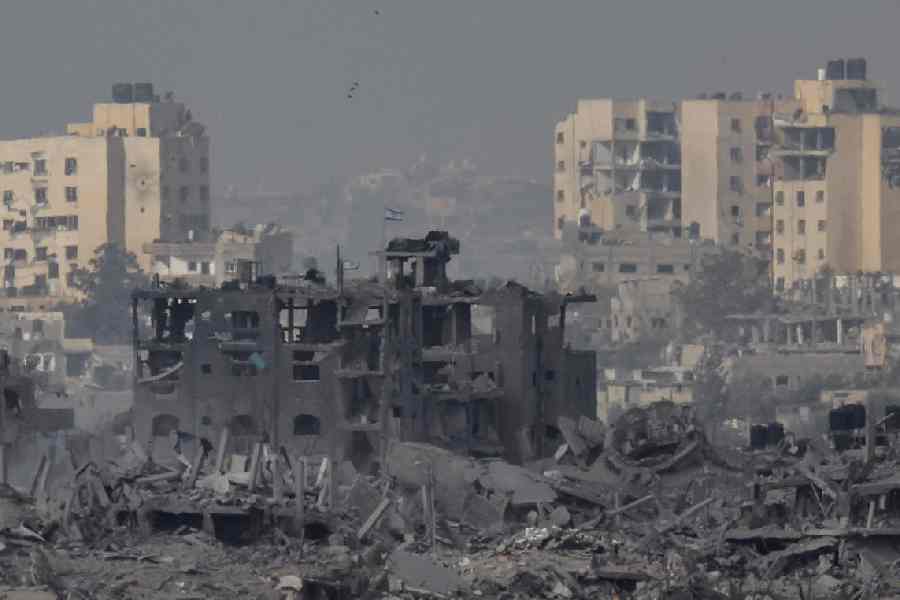Palestinians visited the graves of loved ones killed in the Gaza war and prayed beside the wreckage of a mosque and in shattered streets as the devastating conflict cast a pall over the Eid holiday.
Millions of Muslims around the world are observing Eid, marking the end of Ramzan, with festivities, feasts and family gatherings. But few in Gaza can take solace from this special time for Muslims. After six months of war, their focus is on surviving Israeli air strikes, shelling, a ground offensive and a humanitarian crisis.
Amany Mansour and her mother stood at her young son’s grave, recalling happier times. She said the last Eid was the best one of her life.
“My son was beside me, in my arms, getting him ready. Everything he wanted I did for him,” she said.
“I wish he was here with me. He would go to the mosque in the morning and say to me ‘Prepare my present for when I return’. Gone. Everything good about my life is gone.”
During better times, people like Mahmoud al-Hamaydeh in Rafah would gather with family and friends for festivities and big meals during the Eid holiday.
“This day, for me, is heartbreaking, compared to last Eid. I look at my children and I feel heartbroken. When I sit with them and I start to cry, feeling sad for the days that have passed,” said Hamaydeh, who is now pushed in a wheelchair after being wounded by the Israeli military.
“I remember last Eid and I remember this Eid. Last Eid, I was surrounded by my children, looking at them with joy. But today I am injured, unable to move or go anywhere.”
Instead, he endures Israeli airstrikes that have turned much of Gaza, a densely-populated Hamas-run enclave, into rows of rubble and dust. The war erupted on October 7 when Hamas fighters burst across the border and rampaged in southern Israel, killing 1,200 people.











